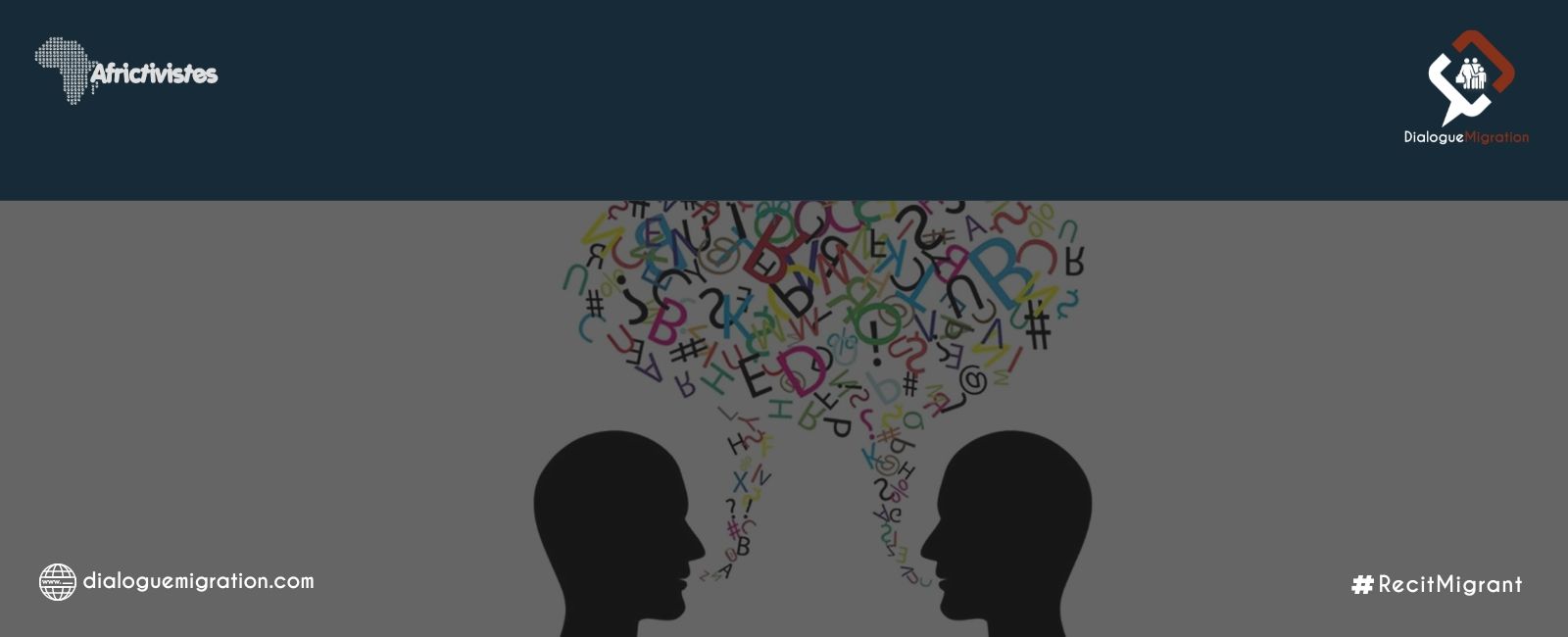

Dialogue Migration walks you through the migration lexicon and phrases which includes commonly used terms and concepts to give you an insight into the issue.
- Migration – Any movement of persons who leave their place of habitual residence to reside somewhere else, either within the same country or across an international border.
- Immigration – The settlement in a country of an individual or group of individuals who is/are from another country. Note: Immigration is often motivated by the search for a job and the prospect of a better quality of life.
- Emigration: Emigration is the act of leaving one’s own country with the intention of settling permanently elsewhere. The word emigrant is used in reference to the country from which people leave, whereas immigrant or immigration is used in reference to the country in which one settles.
- Immigrant: A person who immigrates to a country or has recently immigrated (as opposed to emigrant – see above).
- Economic migrant: The voluntary movement of individuals or populations from one country to another or from one region to another, for economic reasons.
- Regular migrant: A person who crosses or has crossed an international border and is authorized to enter or remain in a State in accordance with the legislation of that State and international agreements to which the host country is a party to.
- Irregular migrant: A person who crosses or has crossed an international border without permission to enter or remain in the country pursuant to its legislation or international agreements to which the host country is a party.
- Stateless: Refers to someone who, having lost their nationality, has not legally acquired another.
- Biometrics: Biometric data is computerised personal data that can be used to identify a person.
- Migration cycle: Stages in the migration process, including departure, sometimes transit through the territory of a State, immigration to the country of destination and return.
- Forced displacement: Movement of people who have been forced or obliged to flee or leave their homes or places of usual residence, in particular as a result of or in order to avoid the effects of armed conflict, situations of generalised violence, violations of human rights or natural or man-made disasters.
- Identity document – Official document issued by the competent authorities of a State to a person to enable him or her to prove his or her identity.
- Environmental migrants: are individuals or groups of people who, mainly for reasons of sudden or gradual changes in the environment that adversely affect their lives or living conditions, are forced or choose to leave their usual home, temporarily or permanently, and who move within their country or abroad.
- Climate migration: a person or groups of persons who, mainly for reasons of sudden or gradual change in the environment due to climate change, are forced to leave their place of usual residence, or choose to do so, temporarily or permanently, within a State or across an international border.
- Labour migration: Movement of people from their country of origin to another country for employment purposes.
- Forced migration: According to the International Office For Migration (IOM), it is “a non-voluntary, coerced and suffered migratory movement, caused by various factors, but involving the use of force, constraint or coercion.
- Border management: it refers to a coordinated approach by border control services, both nationally and internationally, in their efforts to improve their efficiency in managing trade and movement of travellers, while maintaining a balance in relation to the need for control.
- Migration management: Management and implementation, mainly by States within the framework of national systems or bilateral and multilateral cooperation, of all activities related to migration in all its aspects and the integration of migration issues into public policies.
- Border governance: It ultimately aims to move the borders out of the periphery and place border issues at the heart of public policies.
- Migration governance: IOM defines governance as “the traditions and institutions that govern the authority over migration, mobility and nationality exercised in a country, including the government’s capacity to formulate and effectively implement policies.
- Integration: Assimilation (of an individual, a group) to a community, to a social group (➙integrate). Political, social, cultural integration (as opposed to segregation).
- Interception: Interception is the arrest of something/someone that was intended to continue. This is an action that creates surprise, especially for those whose action stops.
- Migrant: Who participates in migration
- Internal migration: The movement of persons within a State for the purpose of establishing a new residence, whether temporary or permanent.
- Naturalisation: Naturalisation is the acquisition of a nationality or citizenship by an individual who does not possess it by birth. Naturalisation is in principle a sovereign act of the State granting it.
- Country of destination – The country to which one travels, stays, studies, works or enters on a regular or irregular basis.
- Country of origin – In the context of migration, the country of nationality or former country of habitual residence of a person or group of persons who have migrated abroad, either regularly or irregularly.
- Asylum seeker: Persons seeking international protection. In countries with individualised procedures, an asylum seeker is a person whose application has not yet been finally decided by the country of destination. Not all asylum seekers will be recognized as refugees, but all refugees are initially asylum seekers.
- Country of transit: ‘Country of transit’ means the countries crossed by migrants during their journey to their country of destination. By the time they begin their journey, however, many migrants do not have a specific destination.
- Permit – In the context of migration, a document, such as a residence or work permit, usually issued by a governmental authority, that certifies that the holder has permission to reside in the territory of the country and/or to engage in a remunerated activity there.
- Repatriations: The organised return of one or more persons to their homeland (country of origin).
- Refugee: People forced to flee their country due to persecution, war or violence. A refugee has a well-founded fear of persecution on grounds of race, religion, nationality, political opinion or belonging to a particular social group. It is likely that they cannot or are afraid to go home.
- Reintegration: Reintegration refers to the process by which the returnee participates in the social, cultural, economic and political life of the country of origin.
- Trafficking in persons: The recruitment, displacement or detention of victims for profit, usually for sexual services or forced labour.
- Migrant worker: A person who is to pursue, is engaged in or has been engaged in a remunerated activity in a State of which he or she is not a national.
- Visa: A document affixed by the competent authorities of a State to the passport or identity document of a non-national wishing to enter, leave or pass through the territory of that State, which indicates that the authorities consider, at the time of issue of the permit, that the person concerned belongs to a category of non-nationals authorised to enter, leave or pass through the territory of the State under its legislation. A visa defines the criteria for entry, transit or exit from the territory of a State.
- Vulnerability: In the context of migration, low capacity to avoid, resist, cope with or recover from harm, due to the particular interaction of individual, household, community and structural characteristics and conditions.
- Xenophobia: There is no universally accepted definition of xenophobia at the international level. However, the term can be defined as attitudes, prejudices and behaviours that reject, exclude and often denigrate people because they are perceived to be external or alien to the community, society or national identity.
- Stateless: Refers to someone who, having lost their nationality, has not legally acquired another.
- Biometrics: Biometric data is computerised personal data because it allows a person to be identified.
- Migration cycle: Stages of the migration process including departure, sometimes transit through the territory of a State, immigration to the country of destination and return.
- Forced displacement: The movement of persons who have been forced or compelled to flee or leave their homes or places of habitual residence, including as a result of or to prevent the effects of armed conflict, situations of generalised violence, human rights violations or natural or man-made disasters.
- Identity document – An official document issued by the competent authorities of a State to a person to enable him to prove his identity.
- Expulsion: Removing someone from a place by authoritarian or legal means; expelling out or pushing out of the borders an adult alien who constitutes a serious threat to public order or who has been criminally convicted.
- Collective expulsion: Any measure compelling aliens, as a group, to leave a country, except in cases where such a measure is taken at the end of and on the basis of a reasonable and objective examination of the particular situation of each of the foreigners forming the group.
- Migration flow: A migration flow includes all people migrating from one region to another. States seek to guide and control them through immigration policies, and policies aimed at emigrants.
- Boundaries: Boundary separating two zones, two regions characterized by different physical or human phenomena.
Previous Article
Lexique de la migration Récemment publié
Entre migration, brassage social et linguistique à Porto-Novo (Bénin)
2026-02-17T15:49:56
Ndoumbé Pouye, engagée pour un développement local sans frontières
2026-02-16T13:51:19
Entrer, séjourner, circuler : le guide complet des formalités au Niger
2026-02-05T15:32:43


